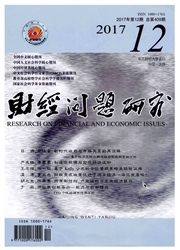

 中文摘要:
中文摘要:
已有的研究表明,社会互动推动了家庭的股市参与。依据社会互动推动家庭股市参与不同机制的理论基础和预测,本文对不同的具体机制进行了研究,我们发现在局部品支出比例高、收入分布集中度高的区(村),社会互动推动股市参与的作用更显著,这与外部习惯模型及相对财富关注模型的理论预测一致,事前对局部稀缺品的关注使得家庭的股市参与存在外部性。社会互动推动股市参与其他机制的理论预测则未得到数据的支持。
 英文摘要:
英文摘要:
Existing evidence indicates that social interaction boosts stock market participation. Based on the theoretical foundation and predictions of different mechanisms, the paper tests which mechanism is dominant in driving household stock market participation in China. It is found that in communities where the ratio of the consumption of local products and service is higher or the income distribution is tighter, the social interaction plays a stronger effect in boosting stock market participation, which is consistent with the prediction of external habit model or model with relative wealth concern. The paper also testes the alternative hypothesis and finds that the data does not support the predictions of alternative theories.
 同期刊论文项目
同期刊论文项目
 同项目期刊论文
同项目期刊论文
 期刊信息
期刊信息
